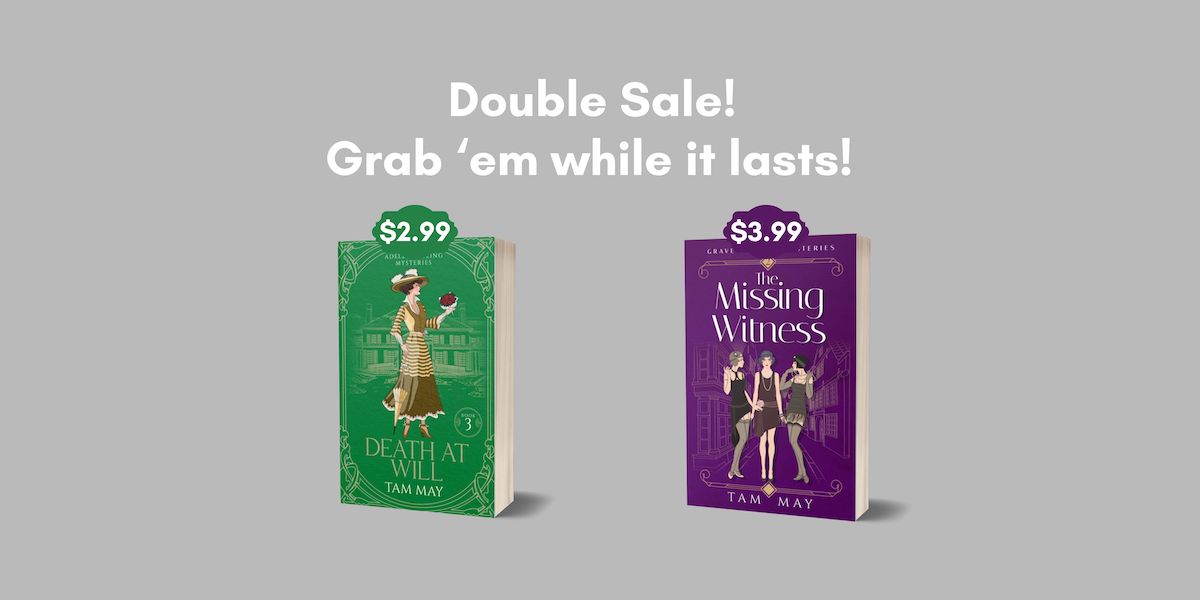May is National Mystery Month, so what better way for us mystery lovers to celebrate than to take a look at one of the most, perhaps the most, famous sleuths in history: Sherlock Holmes?
I have to be honest here. I am not a great lover of the Holmes character. I find him too egotistical and woman-hating for my taste. However, there’s no denying Conan Doyle had something when he created this sleuth whose deductive reasoning and attention to detail wove intricate (and sometimes hard to believe) plots. I personally prefer sleuths who appreciate the value of intuition and psychology along with reasoning, such as Hercule Poirot, Lord Peter Wimsey, and, of course, the protagonist of my Adele Gossling Mysteries.
Last month, I binge-watched the Sherlock Holmes films, but not the contemporary ones. I binge-watched the twelve Universal films and the two 20th Century Fox films. All were made in the late 1930s and 1940s and feature Basil Rathbone as Holmes and Nigel Bruce as Watson.
The series is pretty distinctive in several ways. Classic crime buffs are familiar with Rathbone playing many villainous characters so the series gave him a chance to play a good guy. Bruce, whose name might not be familiar to you, created the Watson character as the lovable but somewhat bumbling sidekick which set a precedence for the Watson character (and many sleuth sidekicks) for books, TV, and film after that.

Photo Credit: Basil Rathbone as Sherlock Holmes, and Nigel Bruce as Dr. Watson, cropped screenshot from Sherlock Holmes and the Secret Weapon, 1943, Universal Pictures: Patrick CecilF/Wikimedia Commons/PD US not renewed
But the most distinctive feature of the series is that most of them are not set in the late 19th or early 20th century when Conan Doyle wrote the Holmes books. They are set in the late 1930s and 1940s (that is, in times contemporary to when they were made). The series has an interesting history. Fox made the first 2 films which were actually set in the 19th century like the original books. These films weren’t very successful so Fox dropped the series. Universal picked it up and decided to change the setting to contemporary times. It was then the series became a huge hit and went on for twelve more films.
Why did Universal decide to change the time period? When the third film in the series (and Universal’s first), Sherlock Holmes and the Voice of Terror, came out, it was 1942 and World War II was raging. They thought the audience would identify more with a contemporary Holmes than a Holmes far removed from the war’s troubling times by fifty years. Audiences identified with the scenery of London and Europe featuring bombed-out buildings, air raids, and blackouts.
Universal took it a step further. The screenwriters revamped many of Conan Doyle’s plots to make them fit with the war. Instead of London underworld criminals. Holmes was fighting Nazi spies. For example, the fourth film in the series, Sherlock Holmes and the Secret Weapon is based on a Conan Doyle short story but features a secret code Holmes is trying to keep from falling into German hands.
Universal’s creative license was very effective not only in making the series more successful than Fox’s version but also in inserting messages to boost the morale of British and American audiences. Many of the films end with Holmes imparting philosophical messages to Watson that are essentially telling audiences not to lose faith and good will triumph over evil in the end.
I’ll admit I’m a purist when it comes to films based on literature. I initially resisted seeing the series because so many of the films were set in contemporary (relative) times instead of when the books take place. But once I started to watch them, I got hooked on how the films show the life and struggle of citizens living during World War II. I highly recommend giving them a chance. You can find most of them on YouTube here.
And if you want more mystery, check out my Adele Gossling Mysteries here. The first book in the series, The Carnation Murder, is out! You can find out all about it and pick up your copy here.
If you love fun, engaging mysteries set in the past, sign up for my newsletter to receive a free book, news about upcoming releases, fun facts about women’s history and mystery, and more freebies! You can sign up here.

